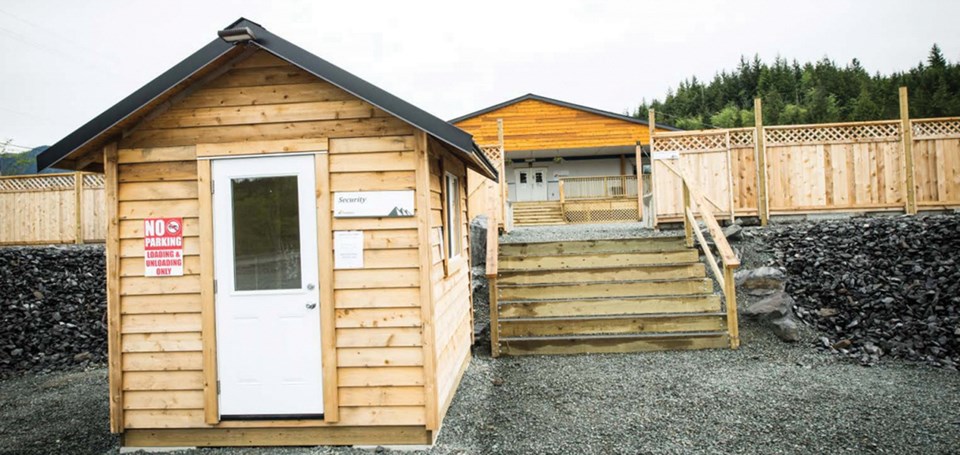The Squamish-Lillooet Regional District is rejecting a proposal for a work camp for up to 300 temporary workers in the south end of Britannia Beach.
The regional board said this decision was made because it would like a more permanent housing solution for workers coming to the area.
“What we would prefer is instead of putting up a temporary work camp, that they construct low-cost housing that will remain when the project is finished to be available for rent,” said vice-chair Tony Rainbow, who represents the Squamish area in the regional district.
The proposal was put forth by a Squamish company called LandSea Camp Services on behalf of the Taicheng Development Corporation, which is seeking to develop the south end of Britannia Beach.
Taicheng has an application before regional district for a 1,000-home development on a 72-hectare piece of land, which includes a gravel pit south of the mining museum, the former Makin lands and some of the land leading to the top of Furry Creek.
LandSea was asking to build a work camp that would hold 100 to 300 people on a 10-acre portion of the Taicheng property for three years.
However, according to the information report shown to the board, “the work camp is not related to the rezoning application or the proposed Britannia Beach South project.”
LandSea said in an email exchange with The Chief the proposed camp wasn’t intended for workers of any one particular company but for employees of any organization who may be assigned to any project in the Sea to Sky area. “These workers could be working as a trade, sub-contractor or service provider for a construction project or new development project in the Sea to Sky Corridor,” wrote Mike Coyne, president of LandSea Camp Services. “This is a non-exclusive workforce lodging solution.”
When queried if the site would house temporary foreign workers, Coyne said no.
“Typically these are not temporary foreign workers,” he added. “Generally, these are workers where commuting is too costly or time consuming, particularly, given the highway congestion.”
Coyne said the company will be meeting again with the regional board in the coming weeks to see if the two parties can hash out a solution.
The proposed camp was intended to be self-contained, as it would have its own food services, water, sewer, and solid waste infrastructure.
Also proposed in the application was a shuttle service that would have buses bringing workers to and from the Squamish waterfront in the morning and evening.
“It is not intended by the applicant that workers will use their personal vehicles to commute to and from the camp,” said the report presented to the board. “As part of their transportation plan, all workers will be bused and/or shuttled to and from the camp to mitigate traffic issues on the highway.”
Requests for comment sent to Michael von Hausen, the lead consultant on the Taicheng Development project, were not returned before press time.




